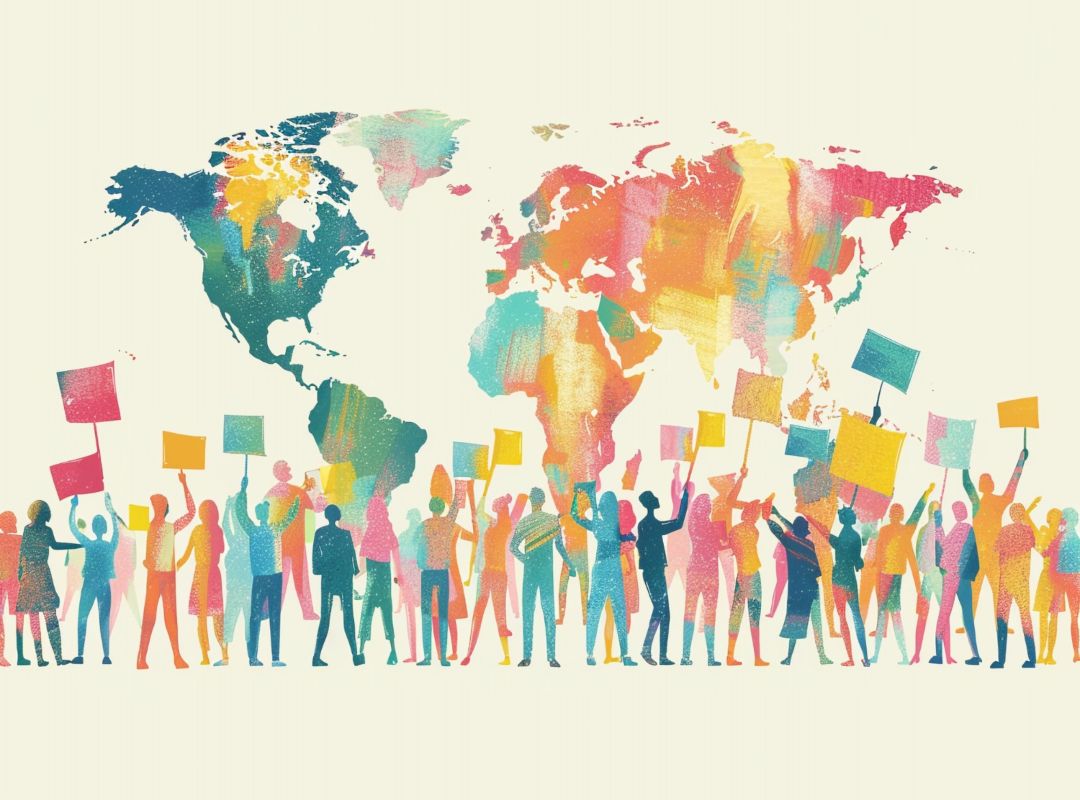The Munich Security Conference (MSC) 2025, often described as the barometer of global politics, underscored a world in flux. The conference highlighted the growing disunity within the West, the rise of multipolarization, and the challenges posed by a shifting international order. With the transatlantic relationship under strain and the United States seemingly retreating from its traditional role as a global leader, the conference left participants grappling with the question: Is the West losing its cohesion, and if so, what comes next?
A Divided West: The Transatlantic Disunion
The MSC 2025 opened against a backdrop of heightened tensions. The Trump administration’s mixed signals and its surprise announcement of a potential peace deal with Russia on the eve of the conference had already put European leaders on edge. The terrorist attack in Munich, which claimed at least two lives, added to the sense of unease. But it was the speech by US Vice President JD Vance that sent shockwaves through the conference.
Vance’s speech, which criticized European democracies for their alleged departure from “shared values,” was met with strong pushback from European leaders. German Defense Minister Boris Pistorius, Chancellor Olaf Scholz, and other European officials rejected Vance’s accusations, defending Europe’s commitment to democracy, freedom of expression, and the rule of law. Vance’s remarks, which questioned Europe’s handling of migration and its refusal to cooperate with far-right parties, were seen as an unwelcome interference in European domestic affairs.
The speech highlighted a growing rift between the US and Europe, with both sides accusing the other of deviating from the normative core of their shared community. As Federal President Frank-Walter Steinmeier noted, the Trump administration’s worldview is “very different from our own,” and its dominance could undermine the international order. The conference underscored a sense of “Westlessness,” a term coined at the MSC years ago to describe the erosion of shared values and unity within the transatlantic alliance.
America First, Europe Alone?
The Trump administration’s “America First” policy has left Europe questioning the reliability of its transatlantic partner. Four years after President Biden declared that “America is back,” many European participants felt that America was now turning its back on Europe. The announcement that US representatives would negotiate directly with Russia over Ukraine, without involving European allies, was particularly alarming. Ukrainian President Volodymyr Zelenskyy’s call for a unified Europe and a “European army” resonated strongly, as he warned that Europe could no longer take US support for granted.
Europe’s reliance on the US for its security has left it vulnerable. Decades of underinvestment in defense and a lack of strategic autonomy have left European leaders scrambling to address the new reality. NATO Secretary General Mark Rutte acknowledged the need for increased defense spending, suggesting that NATO’s new target should be “considerably more than three percent.” European Commission President Ursula von der Leyen and German Chancellor Scholz also called for reforms to EU fiscal rules to allow for greater defense investments.
However, the path to greater European self-reliance is fraught with challenges. Raising defense spending requires tough budgetary choices, political leadership, and time—resources that Europe may not have in abundance. As Zelenskyy and others emphasized, a joint and forceful European response is essential to meet the threats posed by a resurgent Russia and a retreating United States.
Multipolarization and the Global South
The rifts in the transatlantic relationship are not just a European concern. The MSC 2025 highlighted how the shift towards a multipolar world is reshaping global politics. Many participants from the Global South expressed concern about the abrupt and disruptive manner in which the US is abdicating its global leadership role. However, they also saw opportunities in this shake-up of the global system.
China’s Foreign Minister Wang Yi presented Beijing as a “factor of certainty” in a changing world order, emphasizing China’s commitment to multilateralism and the international rule of law. While tensions in the South China Sea pointed to the limits of China’s claim to be a responsible stakeholder, Chinese participants engaged openly with other conference attendees, contrasting sharply with Vance’s confrontational approach.
Participants from Africa, Asia, and Latin America expressed optimism about the opportunities presented by a more multipolar world. India’s External Affairs Minister Subrahmanyam Jaishankar argued that the future only looks like a “jungle” when viewed from a comfortable position. For countries that have not experienced the benefits of the US-led order, the shift towards multipolarity offers new opportunities for partnerships and cooperation.
Ghana’s President John Mahama highlighted the potential for South-South cooperation, while others expressed hope that Europe would consider new partners in the Global South. The conference underscored the need for more pragmatic and less conditional engagement between Europe and the rest of the world.
The Global Costs of an Unraveling Order
Despite the optimism expressed by some, the risks of a more multipolar world were also evident. Participants from the Global South acknowledged the dangers of weakened international rules and the growing absence of positive leadership. UN High Commissioner for Human Rights Volker Türk warned that a multipolar world without rules would lead to chaos, unpredictability, and violence.
Russia’s war against Ukraine and the geoeconomic uncertainty caused by the erosion of global trading rules were cited as evidence of the risks of a world dominated by great-power deals rather than international law. Singapore’s Defense Minister Ng Eng Hen emphasized the need for leadership to protect the global commons, warning that progress and well-being would suffer in its absence.
The challenge of mobilizing resources for collective goals was a recurring theme. While the retreat of the US has created opportunities for new leaders to emerge, it remains unclear who will step up to fill the void. The MSC 2025 left participants grappling with the question of how to build a new international order that is both inclusive and rules-based.
Key Takeaways
1. Transatlantic Disunion: JD Vance’s speech highlighted the growing rift between the US and Europe, with both sides accusing the other of deviating from shared values. The transatlantic relationship is under strain, and the future of the alliance is uncertain.
2. Multipolarization: The Trump administration’s policies are accelerating the shift towards a multipolar world. Europe is increasingly seeking to become an independent pole, while the Global South is exploring new opportunities for partnerships and cooperation.
3. Ukraine and the Emerging Order: The negotiations over a potential peace deal for Ukraine will provide a glimpse into the emerging international order, which appears to be shaped by great-power deals rather than international law.
4. The Need for New Partnerships: Defenders of an international order based on universal rules will need to forge new partnerships and increase their investments. However, it remains unclear whether the necessary political will and resources are available.
Conclusion
The Munich Security Conference 2025 underscored the challenges of a world in transition. The old order, dominated by the US-led West, is unraveling, and a new era of multipolarity is emerging. While this shift presents opportunities for new partnerships and cooperation, it also poses significant risks, particularly for smaller and more vulnerable countries.
Europe faces the urgent task of strengthening its defense capabilities and strategic autonomy, while the Global South seeks to navigate a world where the rules of the game are increasingly uncertain. The MSC 2025 left participants with more questions than answers, but one thing was clear: the old days are over, and a new era has begun. The question now is whether the international community can rise to the challenge of building a more inclusive and rules-based order in a world that is increasingly fragmented.
Reference:
Bunde, T., & Eisentraut, S. (2025). Westlessness Reloaded? Key Takeaways From the Munich Security Conference 2025. Munich: Munich Security Conference. Munich Security Debrief
1. https://doi.org/10.47342/LFJW7131




